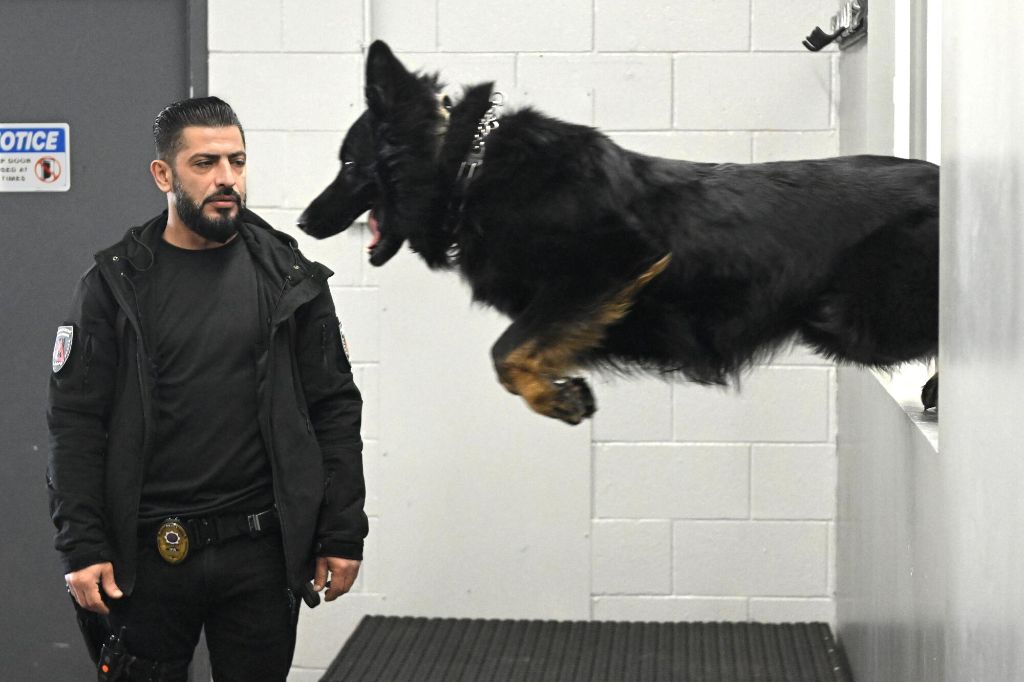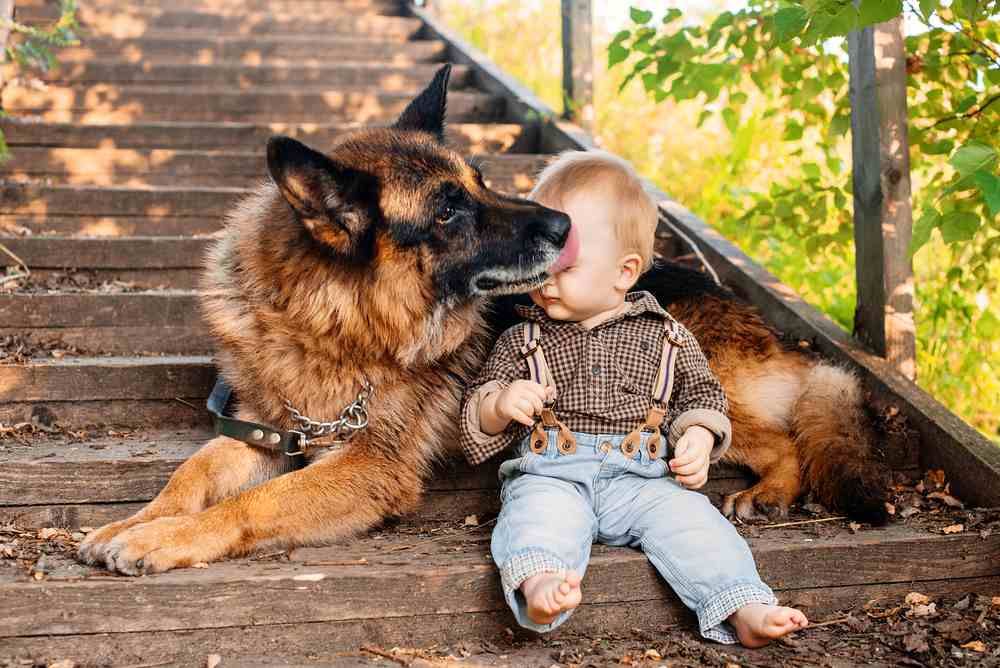Introduction
Whether or not dogs help deter intruders and burglars is a common question for many pet owners. The idea of getting a dog for home protection is appealing, but how effective are they really? This article will examine the topic in depth and analyze the evidence behind using dogs as a security measure. We’ll look at factors like a dog’s bark acting as a warning system, whether certain breeds are better guard dogs than others, and the importance of proper training. The risks of relying solely on a dog for home defense will also be addressed. With home burglaries a concern for many households, understanding the pros and cons of a dog’s security abilities is an important consideration.
Dogs as Deterrents
Many burglars and intruders avoid homes with dogs present due to fear of getting bitten or the dogs making noise, which could alert the homeowners or neighbors. Dogs can act as effective deterrents just by their presence, even without formal guard dog training. According to researchers, “occupancy cues” like dogs are major deterrents for potential burglars targeting homes (source). The perceived risk of confronting an angry dog is enough to discourage break-ins.

Dogs have acute senses and will naturally be alerted to any unfamiliar person approaching or entering the home. Their loud barking can scare away intruders who want to avoid drawing attention (source). Even small dogs can act as deterrents through their barking. Visible “Beware of Dog” signs can further emphasize that intruders should stay away.
Barking as Warning
A dog’s bark can serve as an effective alarm system and deterrent against intruders. According to experts, the sound of a dog barking alerts homeowners that someone is near the home and also scares away potential burglars (https://www.cnet.com/home/security/can-your-dog-deter-burglars-and-prevent-home-break-ins-heres-what-experts-say/). The loud and sudden noise can catch intruders off guard and make them worried about getting caught, causing many to abandon their plans. Home security company ADT notes that a dog’s acute hearing means they will detect people approaching or on the property much sooner than humans, allowing them to begin barking right away (https://www.adt.com/resources/will-your-dog-prevent-a-burglary). This serves as an audible warning system for homeowners. The barking indicates suspicious activity is occurring, enabling residents to take action by investigating the commotion or contacting authorities. Additionally, studies show most burglars try to avoid homes with dogs present to reduce risk, as the barking may draw unwanted attention from neighbors as well (https://calgaryhomes.ca/blog/does-having-a-dog-really-deter-burglars.html).
Varying Effectiveness
Note that not all dogs are equally protective – it depends on factors like size, breed, temperament, and training. Larger dogs tend to be more intimidating deterrents, though even small dogs can alert owners to suspicious activity with barking. According to an expert interviewed by CNET, dog breeds more suited to a security job include larger breeds that have a reputation for being aggressive like German Shepherds, Doberman Pinschers, and Rottweilers. However, they note there’s a built-in disadvantage for dogs acting as intruder deterrents: “While some dogs’ barking may scare away intruders, others may bark at any noise or movement, making it an unreliable alert system.”
An answer on Quora also highlights that “guard dogs can be very effective in deterring intruders and protecting their owners, there are also drawbacks to using them.” Proper training and socialization is required, otherwise dogs could accidentally hurt visitors or show aggression in inappropriate situations. Their effectiveness depends on appropriate handling by owners.
Overall, while dogs have varying aptitudes for protection, their presence certainly helps create a more secure environment. But relying solely on a pet for home defense is less than ideal compared to a proper home security system. Dogs and technology like security cameras and alarms can work together to maximize protection.
Reduced Risk

Research shows that having a dog in the home significantly reduces the risk of burglary. According to a study by The University of North Carolina at Charlotte Department of Criminal Justice and Criminology, homes without dogs had a burglary rate of 15.1%, while homes with dogs had a burglary rate of only 6.1% (https://www.adt.com/resources/will-your-dog-prevent-a-burglary). The study analyzed over 400 burglaries and found that burglars actively avoided homes when a dog was present. Another study published in the Journal of Environmental Psychology found that 83% of convicted burglars agreed that barking dogs deter them (https://calgaryhomes.ca/blog/does-having-a-dog-really-deter-burglars.html). While not a guarantee, statistics clearly show that having a dog leads to a substantial decrease in the likelihood of burglary.
Guard Dogs
Certain breeds like Doberman Pinschers, German Shepherds, and Rottweilers are often specifically trained to serve as guard dogs due to their intelligence, trainability, size, and protective instincts (AKC). These dogs can be very effective at deterring and preventing intruders when properly trained. For example, German Shepherds are highly valued as police and military dogs because of their courage, intelligence, trainability, and strong protective instinct (Reader’s Digest).
However, the effectiveness of any guard dog depends heavily on its training. According to the American Kennel Club, guard dogs require extensive obedience training and socialization from an early age to control their protective instincts and help them distinguish between real threats and false alarms (Good Housekeeping). Without proper training, they may become overly aggressive or territorial. Overall, breeds like Dobermans, German Shepherds, and Rottweilers can make excellent guard dogs with dedication to training, but should be supervised around strangers.
Secure Environments
While dogs can act as deterrents and provide early warning of intruders, relying solely on a dog for home security is generally not recommended. As noted in this article from Safewise, “Dogs aren’t as reliable as a home security system… Dogs sleep. They get distracted.” For the best protection, dogs should be one part of a multilayered home security approach.
In addition to having a dog, it’s important to have secure doors, windows, and fencing to limit access points to the home. A robust home security system with motion sensors, cameras, and alarm monitoring provides 24/7 protection that doesn’t sleep or get distracted. As this CNet article discusses, “A robust home security system is more effective in many ways than a dog.”
By combining the deterrent and warning effects of a dog with professional monitoring, sensors, and secure access points, homeowners can create a multilayered defense against intrusions.

Training
Proper training and socialization are crucial for developing a dog that protects when needed, but is also well behaved and does not show aggression in inappropriate situations. Guard dogs require extensive obedience training to ensure they follow commands and do not act out of turn. According to How to Train a Dog for Personal Protection, basic obedience commands are the foundation, and dogs should respond reliably to commands like sit, stay, come, down, heel, and quiet. More advanced training can include attack and cease commands.
In addition to formal training, dogs need proper socialization from a young age to learn when barking, growling, or biting is appropriate and when it is not. Well-socialized guard dogs can discern between a true threat and normal visitors or activity. Poorly socialized dogs may react aggressively in non-threatening situations. Owners should expose puppies to a wide variety of people and experiences. How to Train Your Dog to Protect Your Family provides an 18 step process for socialization and training.
Risks
While having a dog can deter intruders, there are some risks to consider. The main risk is potential injury to the dog if an intruder enters the home. Dogs instinctively protect their territory and family members, which could lead them to confront an intruder. This opens up the possibility of the intruder hurting or even killing the dog in an attempt to get past them.
Another risk is the dog accidentally escaping the yard in an attempt to chase an intruder. Dogs can become very excited and reactive when confronting a trespasser. If not properly contained, the dog may run out an open gate or dig under a fence. This could lead to the dog getting lost, injured by cars, or picked up by animal control.
Some other risks include the dog biting a family member or visitor who startles them, or the homeowners being sued if the dog does bite an intruder. It’s important to properly train guard dogs and take precautions to avoid these types of accidents.

Overall, dogs can deter intruders, but owners need to weigh the risks versus benefits. With proper precautions and training, dogs can alert to and scare away intruders without endangering themselves or others.
Conclusion
To summarize, dogs can serve as effective deterrents against intruders by barking to warn of potential threats. However, their effectiveness varies greatly based on breed, training, and environment. Well-trained guard dogs who are encouraged to be territorial can significantly reduce burglary risk. But untrained or timid dogs may provide little protection. Overall, having a dog at home does seem to decrease the likelihood of unwanted intrusions. But no dog can guarantee complete security, so other precautions may still be necessary. In answer to the original question, dogs often do protect homes from intruders, but not in every case.
